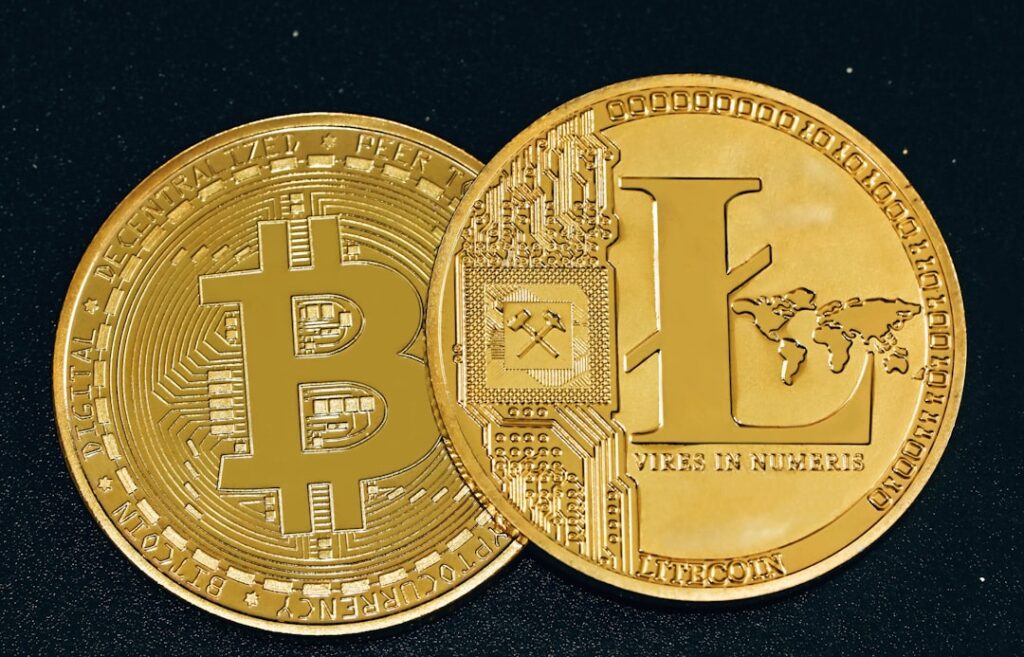Your cart is currently empty!
Bitcoin, the trailblazing cryptocurrency, is revolutionizing the financial world and challenging the traditional banking system. As digital currency continues to gain traction, understanding its core principles becomes crucial for new investors. This post will unravel five essential concepts that lay the foundation for grasping Bitcoin’s intricacies. Strap in for an empowering journey through blockchain technology, Bitcoin mining, wallets, transactions, and the vibrant Bitcoin network and community. Welcome to the exhilarating world of Bitcoin, where decentralization meets innovation.
Blockchain Technology
Decentralization and Security
At the heart of blockchain technology lies decentralization. Unlike traditional banking systems that rely on central authorities, Bitcoin’s blockchain operates on a network of nodes. These nodes are independent computers that validate and record transactions, enhancing security and transparency. This decentralized model makes Bitcoin resistant to censorship and fraud.
Security is another cornerstone of blockchain technology. Each transaction is cryptographically secured, ensuring data integrity and authenticity. Once a block is added to the blockchain, altering it becomes nearly impossible without changing all subsequent blocks, which requires consensus from the entire network. This immutability fortifies the system against tampering.
In essence, decentralization and security are what make blockchain a revolutionary technology, not just for Bitcoin, but for various applications across different sectors. They ensure the system remains robust, transparent, and free from centralized control.

Real-World Applications
Blockchain technology extends far beyond Bitcoin and cryptocurrency. Its decentralized, secure, and transparent nature makes it applicable in numerous real-world scenarios. For instance, in supply chain management, blockchain can track products from origin to consumer, ensuring authenticity and reducing fraud. Companies like IBM and Walmart are already utilizing blockchain technology for this purpose.
In the realm of digital identity, blockchain offers a way to store and manage personal data securely. This can minimize identity theft and provide individuals with control over their information. Governments and tech firms are exploring blockchain-based identity solutions.
Moreover, blockchain is transforming the healthcare sector by enabling secure and efficient sharing of medical records. Patients can grant access to their data to multiple healthcare providers without compromising privacy.
These applications illustrate blockchain’s potential to revolutionize various industries, proving that its impact extends well beyond the financial domain.

Bitcoin Mining
Proof of Work Explained
Proof of Work (PoW) is the backbone of Bitcoin mining. It’s a consensus mechanism that ensures transactions are verified and added to the blockchain securely. Miners compete to solve complex mathematical puzzles, and the first one to solve it gets the right to add a new block to the blockchain. This process requires substantial computational power and energy.
The difficulty of these puzzles adjusts over time to maintain a steady rate of block creation, approximately every 10 minutes. Once a miner solves a puzzle, their solution is broadcasted to the network for validation. If the majority of nodes agree that the solution is correct, the new block is added, and the miner is rewarded with newly minted Bitcoin.
This mechanism ensures the integrity and security of the blockchain, making it exceedingly difficult for malicious actors to alter past transactions without redoing the Proof of Work for all subsequent blocks.

Economic and Environmental Impacts
Bitcoin mining has significant economic and environmental ramifications. Economically, mining can be lucrative. Successful miners earn rewards in Bitcoin, providing an incentive for individuals and companies to invest in powerful hardware and specialized facilities. This has led to the growth of mining farms and the creation of jobs within the industry.
Bitcoin mining is actually fostering innovation in renewable energy sectors. The Proof of Work process, while energy-intensive, is pushing the boundaries for cleaner energy solutions. Many mining operations are leading the charge by utilizing renewable energy sources like hydroelectric and solar power, thereby reducing the industry’s reliance on non-renewable energy.
Furthermore, Bitcoin mining is creating incentives for the development of sustainable energy infrastructure. This drive towards greener practices not only helps mitigate climate change but also promotes technological advancements in renewable energy sectors.

Bitcoin Wallets
Types of Bitcoin Wallets
Bitcoin wallets come in various forms, each offering different levels of security and convenience. Hardware wallets like the Ledger Wallet, Trezor Wallet, and Blockstream Jade are physical devices that store your private keys offline. They are considered one of the safest options because they are immune to online hacks.
Software wallets, on the other hand, are applications you can install on your computer or smartphone. Examples include Electrum and Mycelium. While more convenient for regular transactions, they are more vulnerable to malware and cyber-attacks.
Paper wallets are another option, involving printing your private keys on a piece of paper. While secure from digital threats, they are susceptible to physical damage and loss.
Ultimately, the choice of wallet depends on your security needs and usage patterns. For long-term storage, hardware wallets and paper wallets are advisable. For daily transactions, software wallets offer a balanced mix of security and convenience.

Securing Your Private Keys
Securing your private keys is paramount in protecting your Bitcoin. Private keys are the cryptographic codes that grant access to your Bitcoin holdings. If someone gains access to your private keys, they can control your funds.
One of the most effective ways to secure your private keys is using a hardware wallet. Devices like the Ledger Wallet, Trezor Wallet, and Blockstream Jade keep your keys offline, protecting them from online threats. Always purchase hardware wallets from reputable sources to avoid tampered devices.
For additional safety, consider using seed storage solutions. These are methods for securely documenting your wallet’s recovery phrase, ensuring you can restore access if the device is lost or damaged. Options include metal backups that withstand fire and water damage.
Remember, never share your private keys or recovery phrases with anyone. Treat them like the keys to a safe; only you should have access. Proper security measures will safeguard your digital currency from potential threats.



Leave a Reply